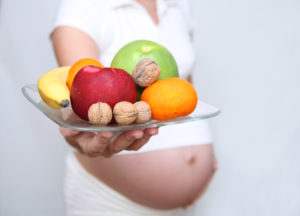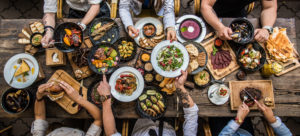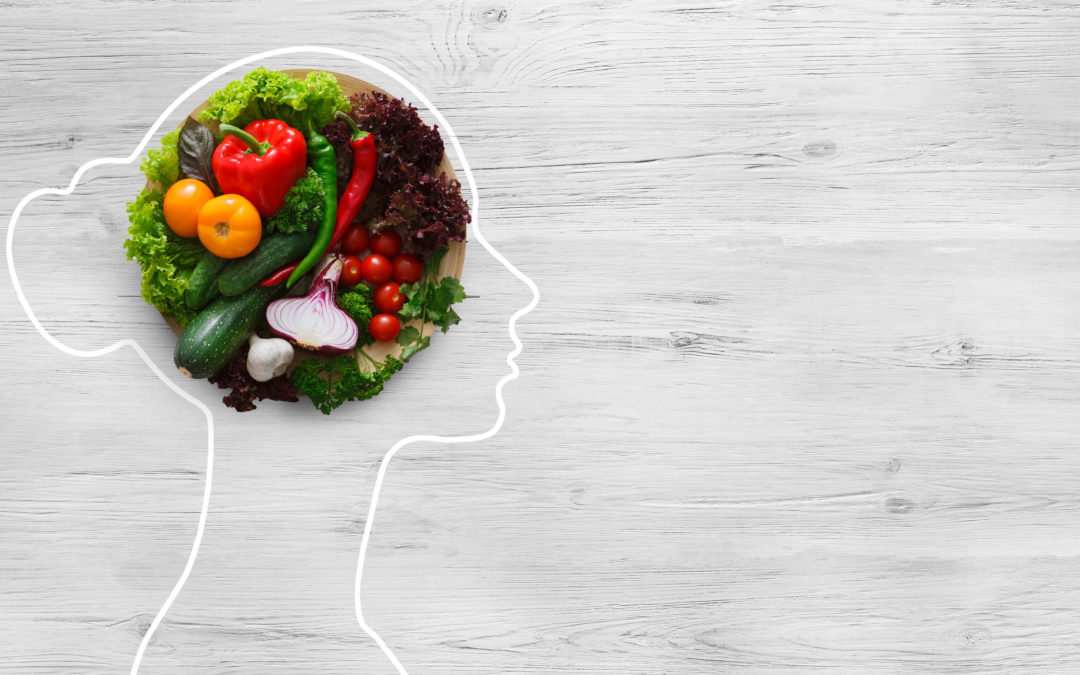What is Nutrition?
Nutrition & Nourishment V’s Diets and Restriction
Nutrition is the fundamental foundation and building block of our overall health and wellbeing. Without adequate nutrition providing fuel and nourishment, so our body can build, grow, heal, repair and function, our core health is likely to suffer and be more susceptible to illness and disease.
When does nutrition start to impact our health?
The moment we start eating solid food?
When we are born?
Our time in the womb?
I would say, nutrition affects us from the time when we are in our grandmother’s womb: where the egg cell that you came from was created and developed within your mother’s body when she was in your grandmother’s belly and maybe even further back than that. 
As a developing embryo and baby, the digestive system is built ready for birth when baby will take food via it’s mouth for the first time. However, in utero, nutrients are taken from the mother, through the blood stream, via the umbilical cord. It can be said that within the womb we are exposed to different tastes from the food our mother eats and we can have physical reactions, likes, dislikes and sensitivities in response to what she consumes.
Within the first few weeks and months, there is an incredible amount of growth and development, transforming a couple of cells into a human body, all facilitated and supported by the mother’s body. The nourishment of the mother is important for her own health and wellness so she does not become depleted, but also for the healthy growth and development of the baby. It is really important that the blood and body are nourished, this can often be a time when women can become deficient in essential nutrients such as iron.
When we are born, nutrition and digestion may be impacted through our exposure to the microbiome via the birth canal, or if certain medications or antibiotics were necessary. From the first smell and taste of milk the baby’s digestive system is kicked into action resulting in the much anticipated and celebrated first black poo – yes we all did it!!! From this early stage, we are taught the importance of observing and monitoring poo, as it is a key indicator of a healthy, functioning, digestive tract.
Babies are interesting to observe as our relationship, emotional attachment and meaning around food can be affected early on. Feeding for comfort and love, feeding to help facilitate sleep, feeding for boredom, feeding when hungry, or when having a growth spurt.
 Also very noticeable, are other people’s comments, opinions and judgements on feeding: the best type of milk and food, what is considered good or bad, too much, too often, not enough, every three hours, on demand, baby being labelled as hungry, greedy or lazy. From the very start of life on this earth, food can be an obsessive topic, and associated emotions, thoughts and beliefs attached to it are formed as stress and anxiety over whether a baby is thriving (getting bigger and fatter) or failing to thrive (not growing or developing in response to what they are consuming).
Also very noticeable, are other people’s comments, opinions and judgements on feeding: the best type of milk and food, what is considered good or bad, too much, too often, not enough, every three hours, on demand, baby being labelled as hungry, greedy or lazy. From the very start of life on this earth, food can be an obsessive topic, and associated emotions, thoughts and beliefs attached to it are formed as stress and anxiety over whether a baby is thriving (getting bigger and fatter) or failing to thrive (not growing or developing in response to what they are consuming).
Physical feelings and emotions, associated with pain and discomfort to feeding, can be felt by both the mother and baby, especially when breastfeeding: whether attachment is painful and feeding causes distress, feeding too fast, reflux, colic or an allergic reaction to milk or dairy.
From the very start of our life on this earth, food becomes an obsessive topic to be monitored and judged, from this, our associated emotions, thoughts and beliefs attached to it are formed.
With this in mind, and an understanding of the complexity of feelings and emotions, or even trauma around food, I feel that it is important to simplify our understanding of what nutrition really is. Conflicting beliefs surrounding food is also confusing and this can lead to us feeling completely overwhelmed and giving up on prioritising it.
Quite simply:
Nutrition is what we absorb from the food and drink we consume to keep us functioning, alive and hopefully well.
After consumption, there are many things that may impact our bodies’ effectiveness at fully harnessing what the body needs, but I am going to focus on nutrition, because eating is one of the first steps in the digestive process.
So why do we eat?
There are many reasons why we eat, in this privileged world where we have access to anything and everything (although at time of writing, I understand that the supermarkets seem to be out of certain fruit and veg… I’m guessing the local veg box providers are fine….). There is so much choice, decision making, conflicting advice and constant bombardment of adverts and access to cheap, quick, processed foods that are tempting to anyone.
We often eat to keep going: eating for energy which is often depleted, opting for convenient high energy food and drink, full of carbs, sugars and caffeine.
 Or we don’t eat at all, either forgetting to in our busyness or because we have fears around food or
Or we don’t eat at all, either forgetting to in our busyness or because we have fears around food or
a need for control.
We eat for pleasure, enjoyment, comfort and for that dopamine hit.
We eat because we are bored, angry, stressed and sad.
We eat because we are hungry (but how often are we actually hungry?).
We eat to be social.
We NEED to EAT to obtain the nutrients for our bodies and minds to work well – SIMPLES!!!!
We all know the core nutrients our bodies need to function and be healthy:
-
-
-
- Fats – help us absorb fat-soluble vitamins & are important for brain function
- Carbohydrates – complex carbs an help regulate blood sugar levels, give us energy, help the digestive system
- Vitamins – energy, DNA synthesis, antioxidants to protect our cells from damage.
- Minerals – help with the formation of bones and teeth, and are needed for the normal function of our nervous system.
- Protein – necessary for growth and repair of cells especially bones, muscles and ligaments, immune sytem and blood
- Water – keeps the body hydrated, helps joints, mucus production, regulates temeperature
-
-
We also know we need a balanced diet, but our ideas and beliefs about what this actually means, and how we make sense of it, will be based on our interpretation of what we have heard. It could be based on our culture, socio/economic status, friends and family, social media, science or environmental concerns. Even political agenda’s and industry can create untruths about certain foods and diets, this can be even more confusing, and may not even suit a particular genetic make-up.
Diets such as: Gluten / Dairy Free, Paleo, Intermittent Fasting, Atkins, See-Food (See food and eat it- love this one ha ha) all have a purpose but by far the best diet is the Mediteranean diet that is enjoyed Al Fresco in the sunshine (my added bit there!!!)
Diets are ways to control what we eat in order to achieve certain goals or feel a certain way, whether that is to help reduce disease, lose weight,be more ethical or to feel more healthier.
If we do not have a medical condition that we are trying to improve, why do we feel the need to have such strict rules around food?
I think the answer is because of how processed and industrialized the food has become, how disconnected we are with what we put in our mouths, advertising, marketing, information and misinformation over something we must do to stay alive – EAT!

I believe nutrition should simply be about:
-
Eating a selection of different foods as close to their natural form as possible
-
Knowing and understanding what and why you need to eat certain foods
-
Eating for nourishment
-
Honouring where food has come from and being grateful
-
Eating mindfully – where, why and how you are eating
-
Paying attention to how we feel before, during and after we eat
So thinking about the food choices you are making and ask yourself……….. how is this nourishing me? If it’s chocolate and you understand that you are eating it because you’ve had a crappy day, feel sad, feel tired, decide if that’s the best option, if it is…….
eat, enjoy, appreciate, don’t scoff it down mindlessly and don’t feel bad or guilty.
Feelings of guilt and shame lead to further consumption of non-nutritious food.
Let food nourish your spirit and keep it simple.
Holistic Therapies for General Health and Wellbeing


Recent Comments